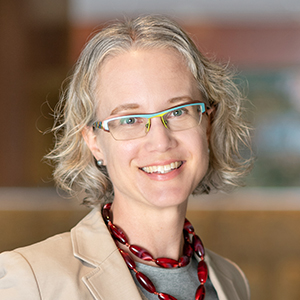I once assisted with teaching a college course in American economic history, and the professor explained that the period lasting from the late 1700s to the eve of World War I was referred to as the “long 19th century.” She meant that sometimes events resist our attempts to put them in clean calendar boxes. It made sense, she argued, to think of this as one period of time, even though it overran its official 100 years.
2020 certainly seems the same. It’s hard to feel that 2020 ended on December 31. The pandemic continued, and only once vaccines became widely available to those of prime working age in early spring of 2021 did recovery begin to feel at hand—a feeling that reversed course in late summer as the delta variant surged. The ongoing uncertainty about health risks combined with uncertainty about financial health and returning to work reveals how valuable the expanded government safety net during COVID-19 has been and underscores the many vulnerabilities that remain in our economy.

The calls for serious investment in closing racial disparities in the United States have also continued. For many, particularly those of us in the Minneapolis area, April 2021 brought landmarks in these discussions as well. The conviction of the officer who killed George Floyd provided needed accountability (as many have noted), but the killing of Daunte Wright less than two weeks before underscored how fragile any progress from 2020 remains.
2020 has overrun its official 12 months—may yet overrun 24 months—but as we look ahead to when it finally closes behind us, we recognize that now is the time to follow through.
Many of us can sympathize with the desire to put down the anxiety, uncertainty, and discomfort from 2020. In doing so, we can’t turn away from the standing challenges that year exposed. We will need to commit ourselves to following through on those lessons. This will require more than one long year.
At the Institute, the fact that we have been growing throughout this period means we’ve had a chance to let these lessons shape our work from its early stages. Our earliest conversations as a growing team occurred in 2020. These conversations helped us set expectations around what the Institute researches, how it conducts research, and how it communicates research that will shape our work for years to come. Much of this communication occurs behind the scenes, in conversations about how we can connect our work to others serving in leadership roles and create a genuinely inclusive scholarly environment. We hope that ultimately our commitment to follow through on the challenges 2020 exposed will be clear in the many ways our research better reflects our wider community.
We’re also following through in other ways. A big one you’ll notice is our cover story in this issue, “Chasing Opportunity.” This continues our commitment to examine the meanings of “economic opportunity” and “inclusive growth,” which make up the Institute’s mission, in this year’s issues of For All. And click the link for our Institute Update, with more examples of how our work is following through on lessons from a long 2020.
Sincerely,

This article is featured in the Fall 2021 issue of For All, the magazine of the Opportunity & Inclusive Growth Institute
Abigail Wozniak is vice president and director of the Bank’s Opportunity & Inclusive Growth Institute.





